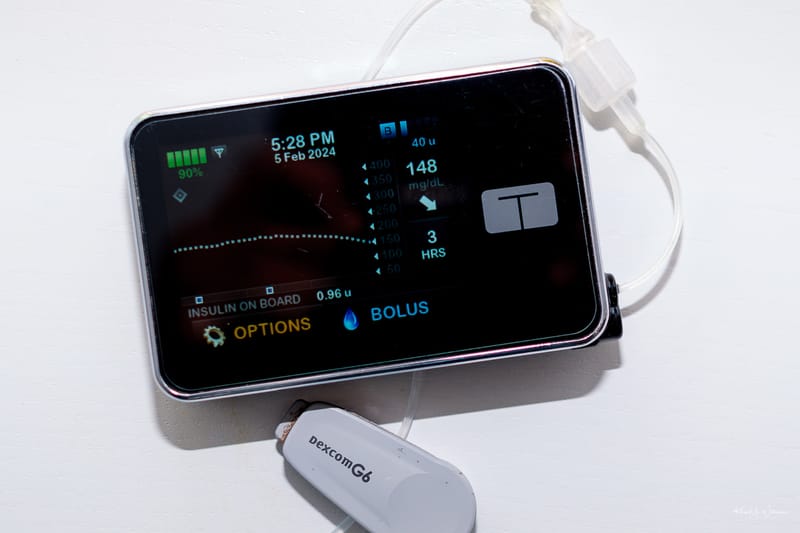I want to explore the differences between Type 1, Type 2, and Latent Autoimmune Diabetes in Adults (LADA), the dangers of Diabetic Ketoacidosis (DKA), and the psychological effects of living with diabetes—including the stigma that unfairly surrounds Type 2.
Type 1 vs Type 2 vs LADA: What’s the Difference?
Type 1 Diabetes: An Autoimmune Condition
Type 1 diabetes is an autoimmune disease where the immune system mistakenly attacks the insulin-producing beta cells in the pancreas. This means the body cannot produce insulin, leading to high blood sugar levels.
🩸 Who gets it? Most cases are diagnosed in childhood or early adulthood, but it can develop at any age.
🩸 Cause? The exact cause is unknown, but genetics and environmental factors (such as viral infections) may play a role.
🩸 Treatment? People with Type 1 diabetes need lifelong insulin therapy via injections or an insulin pump.
Without insulin, the body cannot regulate blood sugar levels, which can quickly lead to life-threatening complications such as Diabetic Ketoacidosis (DKA) (we’ll discuss this more later).
Type 2 Diabetes: A Condition of Insulin Resistance
Type 2 diabetes occurs when the body becomes resistant to insulin or does not produce enough to keep blood sugar levels in check. Over time, this can lead to dangerously high blood glucose levels and long-term complications.
🔹 Who gets it? Typically diagnosed in adults over 40, but it’s increasingly seen in younger people due to lifestyle changes.
🔹 Cause? A combination of genetic predisposition and lifestyle factors such as diet, weight, and physical activity levels.
🔹 Treatment? Management varies but includes diet, exercise, oral medications, and sometimes insulin.
Unlike Type 1, Type 2 is often linked to lifestyle factors, which unfortunately contributes to stigma and blame. However, genetics play a significant role, and not everyone with Type 2 diabetes is overweight or inactive.
LADA (Latent Autoimmune Diabetes in Adults): The ‘In-Between’ Type
LADA, sometimes called Type 1.5 diabetes, is an autoimmune form of diabetes like Type 1 but develops more slowly.
🩸 Who gets it? Adults, usually over 30, who are initially misdiagnosed with Type 2 due to gradual onset.
🩸 Cause? Autoimmune destruction of insulin-producing cells, just like in Type 1.
🩸 Treatment? Initially managed with lifestyle changes or oral medications, but eventually, insulin is required.
Many people with LADA aren’t diagnosed correctly at first because their symptoms progress more slowly than in typical Type 1 diabetes. If oral medications stop working and blood sugar levels become difficult to manage, it’s crucial to get tested for LADA.
Key Differences at a Glance
| Feature | Type 1 Diabetes | Type 2 Diabetes | LADA |
|---|---|---|---|
| Cause | Autoimmune destruction of insulin-producing cells | Insulin resistance and reduced insulin production | Autoimmune destruction (but slower onset) |
| Age at Diagnosis | Mostly in childhood or adolescence | Mostly in adults over 40 (but increasing in younger people) | Mostly in adults over 30 |
| Onset Speed | Rapid (weeks) | Gradual (years) | Slow (months to years) |
| Insulin Production | None or very little | Still some, but not enough | Decreasing over time |
| Treatment | Insulin for life | Diet, exercise, medication, and sometimes insulin | Initially diet and meds, but eventually insulin |
| Reversibility? | No | Sometimes (with major lifestyle changes) | No |
Diabetic Ketoacidosis (DKA): A Life-Threatening Emergency
Diabetic Ketoacidosis (DKA) is a serious and potentially fatal complication that mainly affects people with Type 1 diabetes, though it can occur in people with late stage LADA and occasionally Type 2.
What Causes DKA?
DKA happens when the body, lacking insulin, starts breaking down fat for energy. This process produces ketones, which can build up in the blood, making it dangerously acidic.
Symptoms of DKA:
🚨 Extreme thirst
🚨 Frequent urination
🚨 Nausea and vomiting
🚨 Abdominal pain
🚨 Deep, rapid breathing
🚨 Fruity-smelling breath (due to ketones)
🚨 Confusion or drowsiness
If left untreated, DKA can lead to coma or death.
How to Prevent DKA:
✅ Monitor blood sugar levels regularly.
✅ Take insulin as prescribed and never skip doses.
✅ Check ketone levels if blood sugar is consistently high.
✅ Stay hydrated and seek medical help for illness or infection, as these can trigger DKA.
✅ Recognise early symptoms and seek urgent medical help if needed.
The Psychological Impact of Diabetes
The Emotional Toll of a Diabetes Diagnosis
Being diagnosed with diabetes, whether Type 1, Type 2, or LADA can be overwhelming. The condition requires lifelong management, affecting daily life, social situations, and emotional well-being.
🩸 For Type 1 & LADA patients: The sudden diagnosis, often in childhood or young adulthood, can be traumatic. The need for insulin injections, constant blood sugar monitoring, and fear of complications can lead to anxiety and depression.
🩸 For Type 2 patients: Many experience guilt or blame, feeling as though their condition is "their fault." However, genetics play a huge role, and not all cases are linked to lifestyle.
The Stigma Around Type 2 Diabetes
Type 2 diabetes is often misunderstood by the public. Many assume it is simply caused by poor diet and lack of exercise, leading to stigma and judgment.
🩸 "You brought this on yourself."
🩸 "Just lose weight, and it will go away."
🩸 "Type 2 isn’t as serious as Type 1."
These statements are not only unhelpful but also untrue. While lifestyle factors can contribute, Type 2 is a complex condition influenced by genetics, hormones, and metabolic factors.
The stigma can prevent people from seeking help, making them feel ashamed and isolated. It’s crucial to shift the narrative and focus on support and education, rather than blame.
Final Thoughts: Compassion Over Judgment
Diabetes, whether Type 1, Type 2, or LADA is a serious medical condition, not a personal failing. While management can be challenging, education, support, and understanding can make a huge difference in improving both physical and mental well-being.
If you or a loved one are living with diabetes, know that you are not alone. With the right care, community, and mindset, it is entirely possible to live a full and healthy life.
Let’s replace judgment with empathy and support. 💙
📢 Have you experienced stigma surrounding diabetes? Share your thoughts in the member discussion below!




